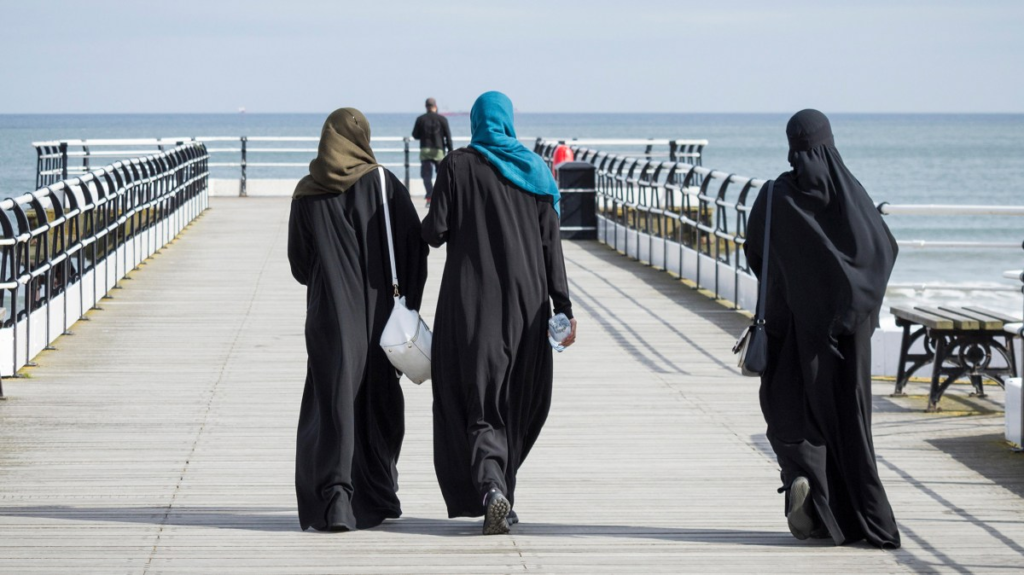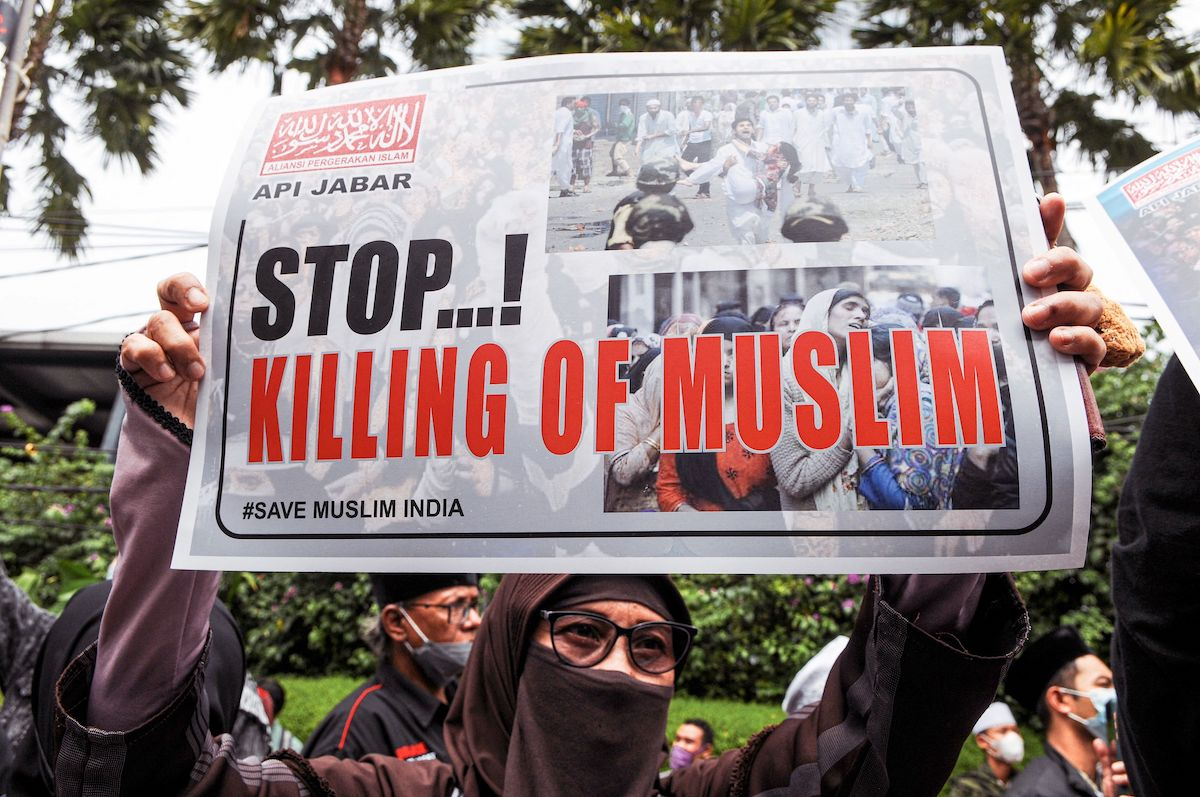The year 2024 witnessed an alarming surge in anti-Muslim hate crimes in the UK, with reports reaching a record high. Tell Mama, an organization that monitors and records incidents of Islamophobia, reported a significant increase in cases, marking the highest number since its inception in 2012.
Notably, for the first time, Muslim men were targeted more frequently than women in offline hate incidents. This shift in victim demographics highlights the evolving nature of anti-Muslim sentiment and underscores the urgent need for coordinated action to combat Islamophobia.
Record Surge in Anti-Muslim Hate Crimes
Tell Mama recorded a total of 6,313 reports of anti-Muslim hate in 2024, a dramatic increase from 4,406 in 2023 and 2,651 in 2022. After verification, 5,837 cases were confirmed to be Islamophobic in nature. The sharp rise in such incidents reflects an intensification of hostility towards Muslims, both online and offline.
The majority of reported cases involved verbal abuse, threats, discrimination, and physical assault. Among these, abusive behavior was the most prevalent, accounting for 62% of cases.
Meanwhile, physical assault cases numbered 171, discrimination 183, and vandalism 209. Particularly concerning was the rise in threatening behavior, which skyrocketed from 121 cases in 2023 to 518 in 2024.
Offline hate crimes, or in-person incidents, saw a substantial increase, with 3,680 cases recorded—a 72% rise since 2022. The most common locations for these hate crimes were public spaces such as streets and parks, which made up 40% of all incidents. Another 10% of reports indicated that workplaces were also becoming sites of anti-Muslim discrimination and abuse.
Read : US Govt Unveils First-Ever National Strategy to Combat Islamophobia
The increase in online Islamophobic hate was equally troubling, with 2,307 cases reported in 2024. The majority of these incidents took place on X (formerly Twitter), which had 991 verified reports. Other social media platforms, including TikTok (317), Facebook (201), Instagram (131), Snapchat (57), WhatsApp (41), and Telegram (10), also witnessed significant levels of anti-Muslim hate speech.
Muslim Men Becoming Primary Targets
For the first time in Tell Mama’s history, more Muslim men than women were targeted in offline hate incidents. This marked shift in victim demographics has raised concerns about the evolving nature of Islamophobia in the UK.
Traditionally, Muslim women, particularly those wearing hijabs, were the primary targets of anti-Muslim attacks. However, in 2024, men bore the brunt of physical and verbal assaults.
Experts suggest that this shift may be due to the increased circulation of harmful stereotypes portraying Muslim men as extremists or terrorist sympathizers.

The report pointed to an increase in inflammatory rhetoric following key geopolitical events, particularly the Hamas attacks on Israel on October 7, 2023, and the Southport murders in the UK in 2024. These events fueled Islamophobic sentiments, leading to heightened hostility toward Muslim communities.
Read : Understanding Islamophobia: Origins, Impacts, and Ways Forward
The rise in hate crimes against men indicates a broader societal shift in how anti-Muslim sentiment manifests. While women continue to face discrimination and violence, the growing number of attacks on men suggests that Islamophobia is becoming more indiscriminate and pervasive. The stereotyping of Muslim men as potential threats contributes to an environment of fear and hostility, further marginalizing the community.
Calls for Government and Community Action
The record-high number of cases in 2024 has prompted urgent calls for coordinated action to address anti-Muslim hate. Tell Mama’s director, Iman Atta, emphasized the need for government intervention, stating, “We are at a nexus point where it is clear that anti-Muslim hate needs a coordinated action by His Majesty’s Government.”
Community leaders and activists have echoed these sentiments, urging policymakers to implement stronger measures to combat Islamophobia.
They highlight the need for better education on Islam and Muslim communities, stricter enforcement of hate crime laws, and increased support for victims. Many argue that social media platforms must also take greater responsibility in curbing the spread of Islamophobic content online.

A government spokesperson acknowledged the seriousness of the situation, stating, “These findings are extremely concerning. Attacks on and hatred against Muslim communities are completely unacceptable and have no place in our society.”
The statement emphasized the government’s commitment to tackling Islamophobia through collaboration with community groups, charities, and public sector partners.
Tell Mama’s report has underscored the need for proactive measures to counteract anti-Muslim hate. The organization continues to provide vital support to victims and track incidents of Islamophobia.
Since its establishment in 2012, more than 51,000 British Muslims and others have used its services, demonstrating the critical role it plays in addressing religious hate crimes.
As hate crimes against Muslim communities reach unprecedented levels, the need for unity and decisive action becomes increasingly urgent. Government officials, social media companies, and the public must work together to challenge harmful stereotypes, protect vulnerable individuals, and ensure that all communities feel safe and respected in the UK.

